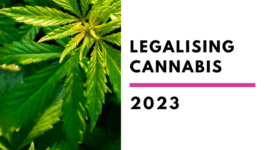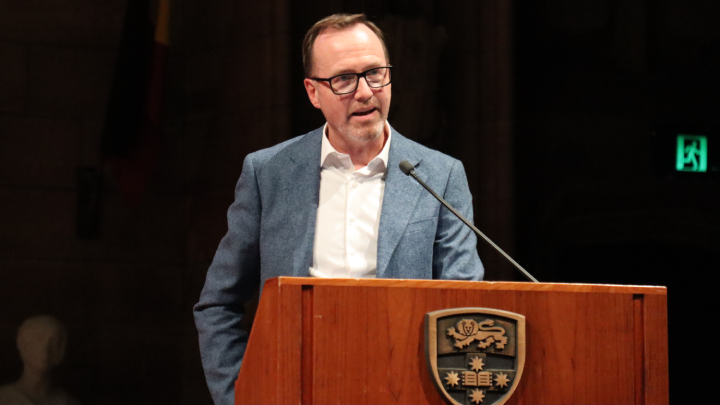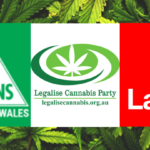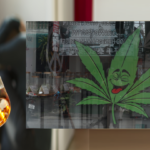Shoebridge’s National Legalise Cannabis Bill Covers All Grassroots Wants and Concerns

After Australia legalised medicinal cannabis nationwide in October 2016, people who use the plant recreationally have been hesitant of political initiatives to legalise it, even though the lawful use of the fairly innocuous herb is the outcome they desire.
And that’s with good reason.
The Turnbull government passed the legislation to facilitate a legal medicinal market, and like the majority of proposals the Liberal Nationals put on the table, the scheme focused on making big business even richer, while leaving the patients in need of the medicine unable to access any.
Six years later, over 746,000 individuals have been issued with cannabis prescriptions, yet the initial stages saw only exorbitantly priced imported products available, with doctors overly hesitant to prescribe the medicine and the number of ailments it could be recommended to treat was minimal.
But legalising a substance for recreational use is a different kettle of fish, especially when the legislation doesn’t have Coalition fingerprints all over it, and those who’ve drafted the laws are well acquainted with the wants of people who use cannabis, and the nature of the plant’s effects.
Indeed, Greens Senator David Shoebridge introduced the Legalise Cannabis Bill 2023 into federal parliament on Thursday, in the wake of nationwide consultation and, in terms of the main concerns grassroots cannabis proponents have about how a lawful market would operate, they’ve all been allayed.
A non-corporatised marketplace
“With just a sprinkling of political courage and collaboration mixed with a truckload of common sense we can make this law because it’s time to end the war on cannabis,” said Shoebridge , during his 10 August second reading speech on the bill.
“It’s time to stop pretending that consumption of this plant, consumed each year by literally millions of Australians, should still be seen as a crime,” he added.
Shoebridge outlined that the consulation process undertaken in response to his draft legislation revealed that Australians don’t want an overly corporatised scheme, and a detailed report released last Friday underscored the importance that any tax rate doesn’t drive consumers back to the black market.
So, what’s on the table is the framework for a “grassroots” market that will turn $28 billion in anticipated public revenue in its first nine years of operation.
And this vision of a legal market place prioritising cottage industries and co-ops is why recreational cannabis supporters should be paying attention, along with the fact that Shoebridge, as a senator and previously a NSW MLC, has been attending Nimbin’s MardiGrass Festival for at least a decade.
Shoebridge released the draft legislation in April and opened up a consultation process, which allowed for feedback via a survey or the provision of submissions, and close to 9,000 members of the public completed the survey and 38 detailed submissions were lodged.
But while the bill providing for all this is now before federal parliament, the fact is that Shoebridge, in line with key grassroots wants, has always envisaged a legalised and regulated cannabis industry that sees Big Pharma, Big Alcohol and Big Tobacco barred from participation.

The guts of the proposal
The other priority fear that people who use cannabis recreationally have had about proposals to legalise it is that authorities may have a complete hold on product. But again, under the Shoebridge legislation, each household will be able to legally grow up to six plants.
And due to concerns raised over the consultation process, the new iteration of the Legal Cannabis Bill does “explicitly allow people to make products, like brownies or gummies, at home for personal use”, along with a provision that requires homegrow crop not to be accessible to the public.
In terms of pricing, the Shoebridge bill is aiming to deliver the more than reasonable price of $13 per gram of cannabis retail. And in terms of the proposed tax rate, it will be set at 15 percent, which 70 percent of respondents supported, while 23 percent were in favour of a higher rate.
In the US state of Colorado, which is often held up as the shining example of how beneficial a legal cannabis market can be for the whole of community, since its first retail sale on 1 January 2014, $2.34 billion in tax revenue has been funnelled back into the public sector via the sale of the plant.
The legislatiopn establishes the Cannabis Australia National Agency (CANA): an oversight body that will maintain a register of legal cannabis strains, ensure safety in the market and issue licences to authorise cannabis production and sales, including the provision of cannabis cafes.
The bill also ensures that young people can’t obtain cannabis, it creates offences to penalise those who stray outside of the laws, including prison time for illegal import or export, and there is a prohibition on advertising, but not at point of sale, and an online presence will be permitted.
So, why is it illegal?
Another significant benefit of a legal cannabis market is that the 10 percent of the population that regularly uses the plant will no longer have to fear arrest or penalty for drug possession, and with over a third of us having tried cannabis, this means a lot of usually law-abiding citizens will no longer be criminalised.
“It’s the chance to radically reduce harm, literally overnight, by saving some 80,000 Australians a year from being caught up in the criminal justice system for possession of cannabis,” Shoebridge told the Senate on Thursday.
Legalised cannabis would also likely see the end of the warrantless use of sniffer dogs in public, as when a drug dog makes an indication that actually results in an illicit substance being found – about a third of the time – what’s uncovered in more than two-thirds of occasions is a small amount of pot.
As to its illegality, cannabis was a last-minute addition to the first global drug treaty banning recreational opium and coca use: the 1925 Geneva Convention. However, Australia’s first health director general recommended against the outlawing of what was then a commonly used substance.
And in the 1930s, after the US Federal Bureau of Narcotics attempted and failed to ban alcohol, it turned its attention towards demonising the plant.
Yet, the experts all agree that harms-related to cannabis use are much less than those caused by the currently legal drugs in this country: tobacco and alcohol.
A global trend
On release of the draft legislation, Shoebridge told Sydney Criminal Lawyers that the Greens were “releasing the first ever bill to legalise cannabis nationally, striking a solid blow against the war on drugs and creating an amazing new grassroots super-green industry”.
And the proof that this is the right direction for the nation to head in is that in late 2012, the US states of Colorado and Washington voted to legalise cannabis, and so successful was that move that today, 22 US states, as well as the nation’s capital, have passed laws making the plant legal.
This trend has further seen governments legalise cannabis nationally. This includes Canada, Uruguay, Thailand and Malta, while in the countries of Mexico and South Africa, the highest courts ruled that it was the right of citizens to use and grow cannabis at home.
“The Legalising Cannabis Bill 2023 is a chance for politics to show it can listen, it can work across traditional divides, and it can act in the public interest,” Shoebridge concluded his speech. “No one, apart from bike gangs and organized crime, benefits from the endless war on cannabis. ”
“This is the time to end that war and instead build a new and vibrant legal cannabis industry that is safer, more democratic and with a powerful social licence.”







